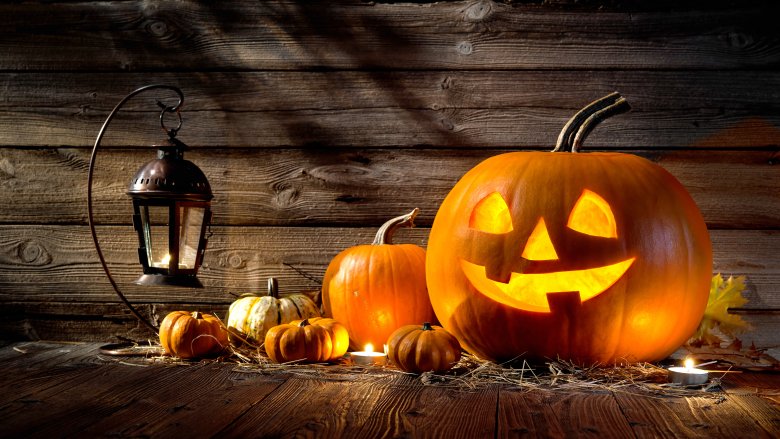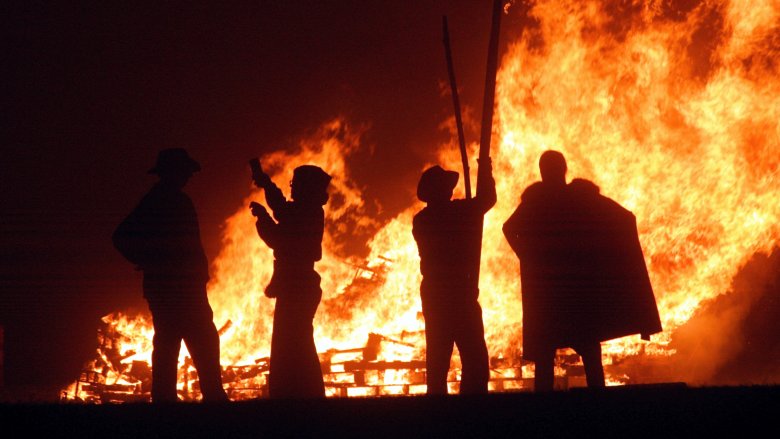The Real Meaning Of Halloween Explained
Depending on who you ask, Halloween is either a fun evening where kids get to dress up as their favorite character, monster, or hero and then wander around the neighborhood collecting enough candy to make them puke several times before bedtime, or it's Satan's holiday. But neither one of those takes is true to the actual origins of Halloween. The truth about the last day in October is that it was once a religious celebration, and just because it wasn't an explicitly Christian religious celebration does not mean it's Satan's holiday. So let's just boot that interpretation right out of the metaphorical door.
The Celtic roots of Halloween
Halloween has its roots in the Celtic festival of Samhain, and just in case anyone out there is thinking "See! It's Celtic and therefore it's evil!" keep in mind that Christmas also has its roots in Celtic traditions — mistletoe and the yule log are traditions that come from Celtic winter solstice celebrations.
According to History, Samhain was the traditional end of summer, and the beginning of the long, cold season. In those days, people tended to die more often in the winter, so there was also a belief that on the day between the season of life and the season of death, the boundary between the real world and the world of the dead was thin and could be crossed by spirits. People would light bonfires to keep ghosts away, but in a way they would also celebrate those otherworldly presences because they also believed that priests could draw on the spirit world to help see the future.
On Samhain, the Celts would dress in costume — usually animal skins — which is where we get the modern tradition of dressing up. But seriously, people, there was nothing evil about the Celtic Samhain festival. It was simply a way for people to feel like they had some small measure of control over a world that could be cruel and often terrifying.

